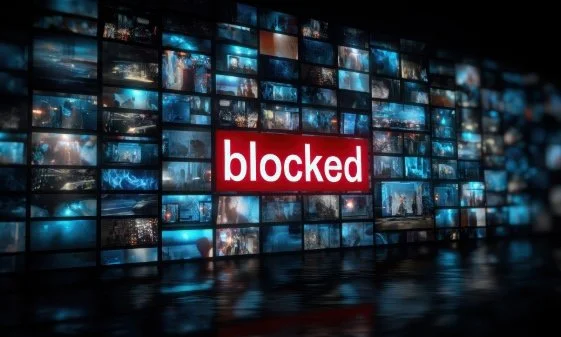Govt Limits Who Can Issue Internet Takedown Orders, But Questions Remain
The Threat To Legitimate Journalism Persists
October 24, 2025
The central government has restricted the number of officials authorised to order the removal of online content from social media platforms and websites, departing from its earlier policy that allowed thousands of officers to issue such directions. While the change appears to promote accountability, it leaves unresolved the concern that a government-run effort to combat “misinformation” could also silence legitimate reporting, commentary and political critique.
The government’s recent modification to the Information Technology (Intermediary Guidelines and Digital Media Ethics Code) Rules limits takedown powers to senior officials, like bureaucrats at joint secretary rank and above, and police officers at the level of deputy inspector general or higher, as reported by Reuters.
The earlier framework had allowed a much larger pool of officials, including police inspectors, to issue takedown directions. The expansion had sparked disputes with social media platforms, notably Elon Musk’s X, which had argued in court that India’s system allowed excessive control over online speech.
The new rule introduces procedural safeguards that were previously absent. Orders must now carry a “reasoned intimation,” specifying the legal provision invoked and the precise nature of the unlawful content. These orders are also subject to monthly review by a secretary-level officer. According to the government, the revision will ensure senior-level accountability and reduce arbitrary use of power.
The change follows months of legal confrontation, including X’s unsuccessful challenge in the Karnataka High Court, which had upheld India’s right to regulate content under local law.
Despite these improvements, the framework still rests on a rule that conflates misinformation control with the regulation of expression about government activity.
The 2023 amendment to the IT Rules inserted clause 3(1)(b)(v), requiring intermediaries to avoid hosting content deemed “fake, false, or misleading” by a government-appointed fact-check unit regarding “any business of the Central Government.” It overlooks a clear conflict of interest, as it allows the state to decide what is true about its own actions. This remains the unresolved problem even after the number of authorised officials has been reduced.
Journalists and digital rights advocates warn that the provision could deter free expression online. Intermediaries, fearing legal exposure, may remove material pre-emptively rather than risk sanction. Reporting on government decisions or performance could easily fall within the rule’s ambiguous terms.
In 2023, police inspectors issued takedown orders for cartoons and satirical posts on X, according to Reuters.
Constitutionally, this tension touches the limits of Article 19(1)(a), which guarantees freedom of speech subject to reasonable restrictions. Courts have held that restrictions must be narrowly tailored to legitimate state interests such as public order or defamation. A rule that enables the executive to decide what is “false” about its own conduct exceeds those limits. The Bombay High Court’s earlier judgment striking down the fact-check provision as unconstitutional made this point clear, calling it vague and overbroad.
Globally, similar state-led misinformation mechanisms have been misused. In Singapore, the Protection from Online Falsehoods and Manipulation Act (POFMA) has allowed ministers to demand corrections or takedowns of content they deem false, leading to complaints of political misuse. In Turkey, recent amendments to its internet law introduced a “disinformation” offence that rights groups say is used to stifle journalists.
The government’s intention to limit misinformation online is understandable. But a credible framework must separate factual falsity from legitimate opinion or scrutiny.
You have just read a News Briefing by Newsreel Asia, written to cut through the noise and present a single story for the day that matters to you. Certain briefings, based on media reports, seek to keep readers informed about events across India, others offer a perspective rooted in humanitarian concerns and some provide our own exclusive reporting. We encourage you to read the News Briefing each day. Our objective is to help you become not just an informed citizen, but an engaged and responsible one.

